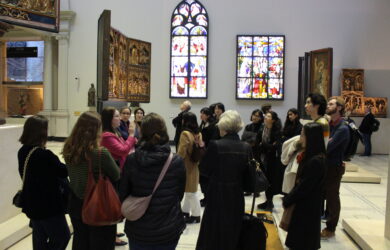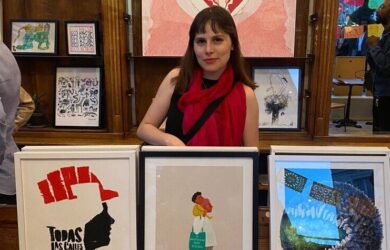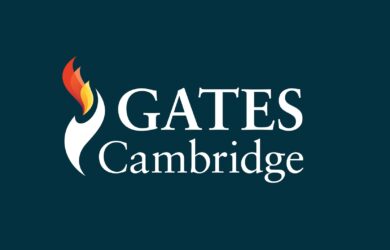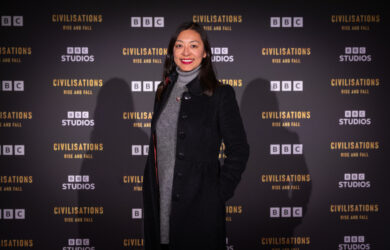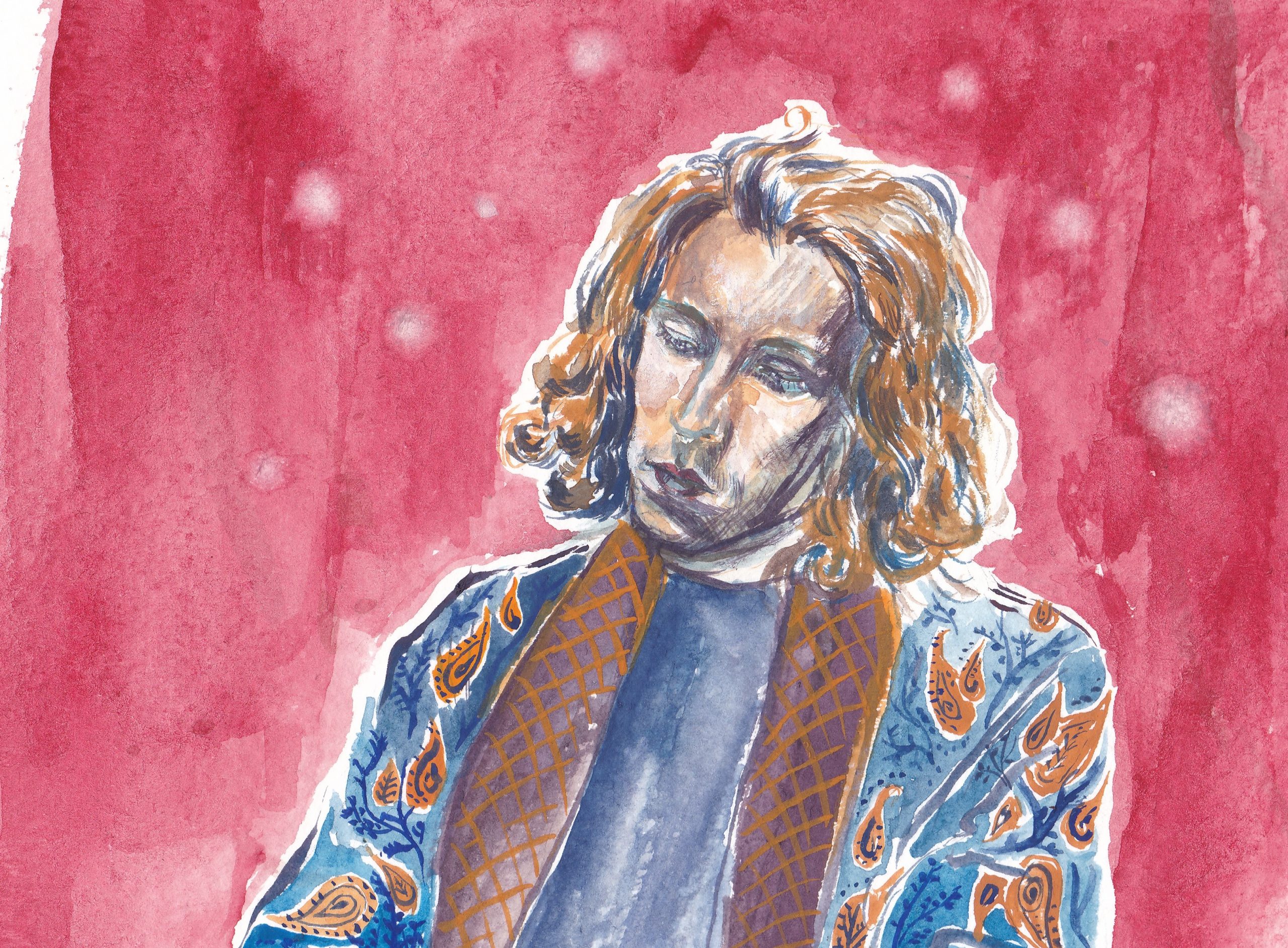
Rafael Dernbach's PhD studies future scenarios in documentaries and art films.
I am interested to see how film makers can convey a deeper understanding of social issues and power structures by exploring future scenarios which are neither wholly negative or utopian.
Rafael Dernbach
What does the future hold? If you rely on the media, it's a world ruled by vicious artificial intelligence, of walled communities and wars over diminishing resources. But does this dystopian view have to be the only image we have of the future? Could we not plan for different outcomes and scenarios? And what do these dystopian images reveal about our contemporary world?
Rafael Dernbach’s PhD focuses on the depiction of futures in documentaries and art films. Based on a detailed study of reflections on the future in the works of documentarists Harun Farocki, Hito Steyerl and Neil Beloufa, his research analyses how we construct the future through images, “pre-enactments” [depicting potential future events] and storytelling.
Rafael has sought to develop a theoretical framework for what he calls “anticipatory realism” about the different modes in which futures are constructed. Future scenarios follow narrative and pictorial rules and realities. Often, these constructions of futures are used by organisations and political actors for specific agendas. Rafael says: “Our society is more and more structured along predictive models and scenario planning. I am interested to see how film makers can convey a deeper understanding of social issues and power structures by exploring future scenarios which are neither wholly negative or utopian.”
Rafael [2014] hopes to continue to look at these themes in a film project he will begin after his PhD in Modern and Medieval Languages is completed later this year.
Early years
Rafael was born in Giessen, Germany, into a big Catholic family. His father was the first in the family to go into higher education after starting work as a metal worker and later moving into Engineering. His mother had won maths prizes at school, but was not able to continue her studies after leaving school.
Rafael says their experiences and restricted opportunities have driven his interest in learning and in ideas.
From an early age Rafael wanted to be a journalist and he wrote regularly for a local newspaper, at one point having a regular column and attending weekly editorial meetings. With other students he transformed the school newspaper and, as editor then editor-in-chief, contributed to it winning best student newspaper in his state for two years. He also attended training workshops in student journalism, becoming a mentor for the scheme later on.
Academically, he excelled at languages and was fascinated by life sciences with their emphasis on observing nature. After leaving school, Rafael was keen to go to journalism school, but faced the prospect of having to do military service. He declared himself a pacifist, opted to do community service instead and ended up being posted to Chile to work on a project for disadvantaged children in Santiago. He describes the experience as a political awakening. “It was when I first realised I was white and came up against the white saviour mentality. I realised that it was very difficult to help people and more important to listen to them rather than imposing my own ideas,” he says.
Media theory
When he returned to Germany he decided he didn’t want to go to journalism school in Germany so he applied to a liberal arts college in the Netherlands, University College Maastricht, where he benefited from studying in an international community. The course in Liberal Arts and Sciences was very broad and covered everything from film making and philosophy to maths. Rafael decided to focus on media theory and philosophy. “It became clear that my interest was media theory and how the media structures our understanding of the world in broad terms,” he says. The three-year course included a semester at the University of California at San Diego in the visual arts department where he was taught by inspiring professors including Jean-Luc Godard’s assistant Jean-Pierre Gorin. He also spent a semester at Berlin Freie University studying philosophy.
Rafael’s final project was an ethnographic study of whistleblowers which centred on interviews with four whistleblowers, including former MI5 intelligence officer Annie Machon and Mike Gravel who leaked the Pentagon Papers about the Vietnam war. “I was interested in what happened to whistleblowers afterwards, how the media reported it and the impact whistleblowing had on their professional careers and personal lives,” he says. Two of the interviewees admitted they felt it had been too high a price to pay.
The thesis helped Rafael land his first journalism job after an internship with a film production company. Initially, he worked as a freelance researcher on a small experimental programme called Electrical Reporter on German state tv. The programme’s remit was digitalisation and net politics and it was the first in Germany whose material was produced under a creative commons licence. After a few months, Rafael was able to develop his own short documentaries. He stayed with the programme for just over a year while also writing for different media, but eventually longed to return to the world of theory. He was keen to explore how we can create sensible, ethical depictions of the future rather than scare stories so he applied to do an MPhil in Film and Screen Cultures at the University of Cambridge. From there he continued to the PhD.
Rafael, who is based at King's College, says Cambridge has provided a stimulating environment for his research. “The quality of the conversations and a diversity of perspectives have really enriched my research,” he states. “I have also benefited a lot from collaborations with Gates Cambridge Scholars and the generosity of the scholarship means I do not have to work alongside my academic work so I can focus fully on my research.”
Picture credit: Jasmine E. Brady
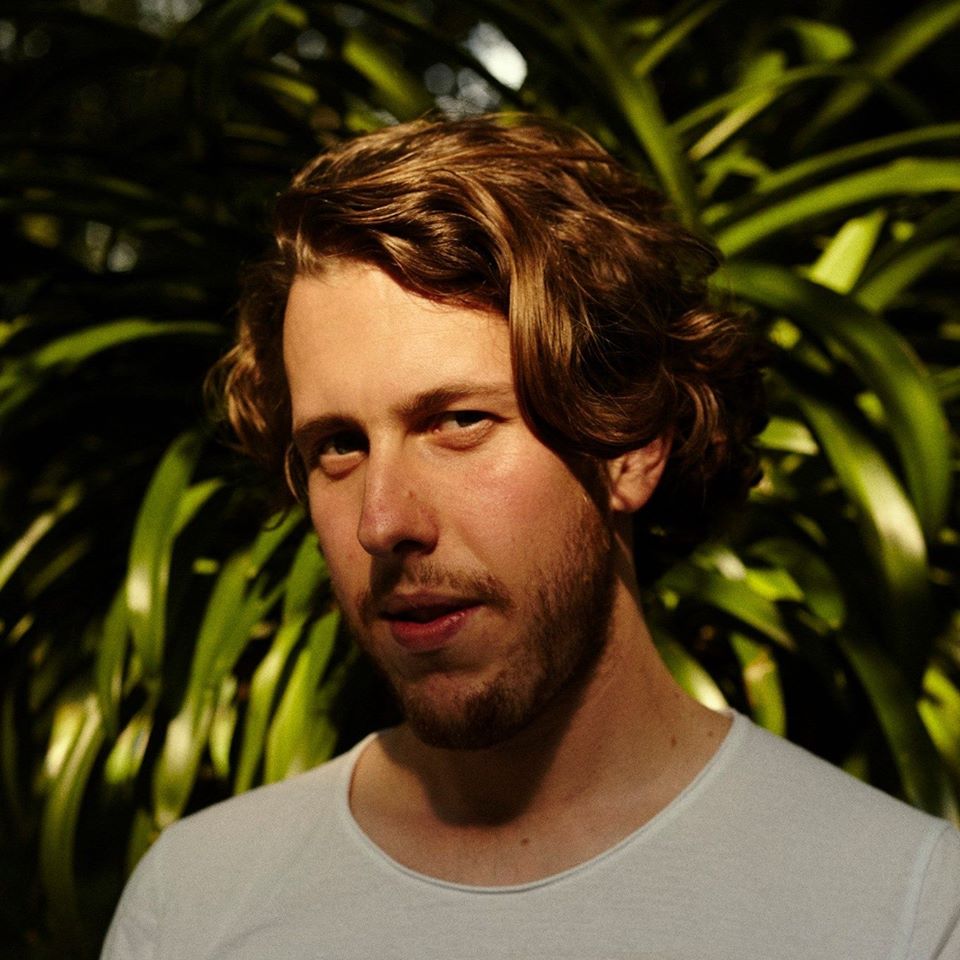
Rafael Dernbach
- Alumni
- Germany
- 2014 PhD Modern and Medieval Languages: German
- King's College
Rafael Dernbach is a researcher and writer concerned with the social and medial constructions of futures. Currently, he acts as Director of Emerging Narratives at fischerAppelt advisors. Previously, he was a research associate for Futurium, House of Futures in Berlin. As a Gates Scholar, he received his doctorate for research on anticipatory realism in post-cinematic art at the University of Cambridge in 2018. He held visiting researcher positions at Princeton University and Freie Universität Berlin. He has also teaches media theory and design theory at universities and academies.
Links
https://www.linkedin.com/in/rafael-dernbach-ph-d-10a9161a3
http://www.rafaeldernbach.com
http://twitter.com/rdernbach








